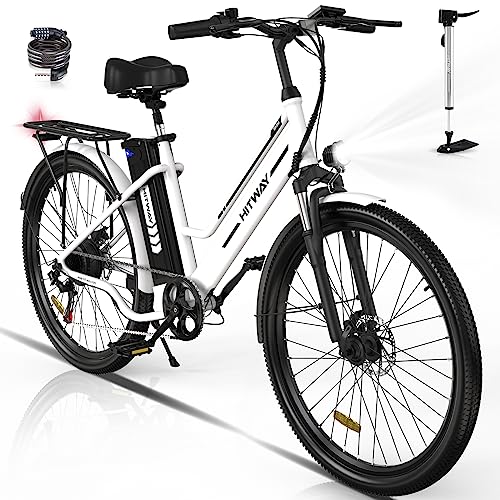Summary
The e-bike industry is facing increased scrutiny and regulation following recent fires caused by batteries. But this is also impacting the right to repair bicycles, as the industry is requesting that e-bikes be exempted from right-to-repair bills. The industry claims this is for safety reasons, as repairing e-bikes, especially batteries, requires proper training. However, right-to-repair advocates argue that safe repair should be accessible and monopolizing access does not help. While battery recycling is important for sustainability, the e-bike industry also needs to focus on repairability to prevent waste and conserve resources.
Why E-Bike Companies Are Embracing Recycling While Fighting Repair
Introduction
In recent years, the demand for electric bikes, or e-bikes, has skyrocketed. These eco-friendly vehicles have become a popular choice for commuting and recreational purposes. With this surge in popularity, e-bike companies have taken sustainability and environmental responsibility seriously. They are increasingly embracing recycling practices while simultaneously fighting against repair restrictions. This article will delve into why e-bike companies are prioritizing recycling and explore the barriers they face with repair.


1. The Rise of E-Bikes and Environmental Impact
1.1 E-Bikes as Sustainable Transportation
As concerns about air pollution and carbon emissions continue to grow, people are seeking alternative forms of transportation. E-bikes offer a green solution by reducing reliance on cars and public transportation systems. Rechargeable batteries, which produce zero emissions power these bikes. By choosing e-bikes, individuals can contribute to reducing their carbon footprints while enjoying the numerous benefits of cycling.
1.2 Growing Environmental Awareness in the E-Bike Industry
E-bike companies have noticed the increasing interest in sustainable transportation and are striving to align their practices with environmentally friendly standards. They recognize the importance of adopting recycling initiatives to manage the waste generated by battery disposal and other materials used in e-bike manufacturing.
2. E-Bike Recycling Initiatives
2.1 Battery Recycling Programs
One of the main components of an e-bike is its battery. To ensure the proper disposal and recycling of these batteries, many e-bike companies have established battery recycling programs. These programs aim to recover valuable materials from used batteries while reducing the environmental impact of disposal.
2.2 Material Recovery from E-Bike Components
Apart from batteries, e-bikes comprise various materials such as aluminum, steel, and plastics. To promote sustainability, companies are investing in technologies and facilities that can efficiently recover these materials from discarded e-bikes. By recycling these components, e-bike companies can minimize their reliance on raw materials and reduce their overall carbon footprint.
3. The Importance of Repairability
3.1 Consumer Benefits of Repairable E-Bikes
Repairability is a crucial consideration for consumers when purchasing e-bikes. While the focus is often on recycling, a poorly repairable e-bike can end up being discarded, contributing to electronic waste. By prioritizing repairability, e-bike companies enable consumers to extend the lifespan of their bikes, reducing waste and promoting a sustainable cycle of use.
3.2 Challenges Faced by E-Bike Companies
Despite the importance of repairability, some e-bike companies face challenges from manufacturers who restrict access to repair materials, diagnostic tools, and software. These restrictions make it difficult for independent repair shops to carry out repairs and force consumers to rely on allowed repair centers, which can be costly and inconvenient. E-bike companies are increasingly advocating for Right to Repair legislation to ensure fair access to repair resources.
HITWAY Electric Bike for Adults 26" x2.35 Fat Tire Electric Mountain Bike with 500W Motor, Ebkie with 36V 15AH Removable Battery Bicycle, Long Range 21-55mile with 7 Gears E Bike
SMARTRAVEL Electric Bike 32MPH E Bikes for Adults Electric with 1200W 48V/20Ah Removable Battery 20" Fat Tire Electric Dirt Bike Commuter E Bike for Women & Men Mountain City Electric Bicycle Black
ENGWE-T14 Folding Mini-Ebike ENGWE-Electric-Bike - 14" Fat Tire Small Electric Bike with 350W 48V10AH Removable Battery 4 Shock Absorptions for Adults-Teens Urban City Commuter (US Warehouse)
Jasion EB5 Electric Bike for Adults with 360Wh Removable Battery, 40Miles 20MPH Commuting Electric Mountain Bike with 350W Brushless Motor, Shimano 7 Speed, 26" Tires and Front Fork Suspension
$329.99
4. Conclusion
As the demand for e-bikes continues to rise, the industry is taking proactive steps to promote sustainability. E-bike companies are embracing recycling initiatives to manage battery waste and recover valuable materials from used bikes.
Prioritizing repairability ensures that e-bikes have longer lifespans, reducing electronic waste. However, challenges related to repair restrictions hinder repairability efforts. By addressing these barriers and encouraging Right to Repair legislation, e-bike companies can further their commitment to a greener future.
FAQs (Frequently Asked Questions)
1. Can e-bike batteries be recycled?
– Yes, many e-bike companies have established battery recycling programs to properly dispose of and recover materials from used batteries.
2. How can e-bike recycling benefit the environment?
– E-bike recycling reduces waste and the need for raw materials. Recovering valuable components and materials helps reduce the industry’s overall carbon footprint.
3. Why is repairability important for e-bikes?
– Repairability promotes the longevity of e-bikes, reduces electronic waste, and allows consumers to extend the lifespan of their bikes.
4. What challenges do e-bike companies face in terms of repairability?
– Some e-bike manufacturers restrict access to repair resources, making it difficult for independent repair shops and consumers to carry out repairs.
5. What can consumers do to support e-bike companies’ sustainability efforts?
– Consumers can choose e-bikes from companies that prioritize repairability, take part in battery recycling programs, and advocate for Right to Repair legislation.






